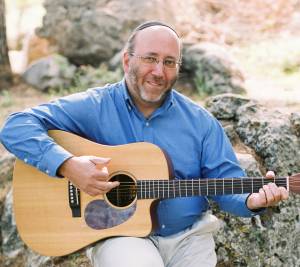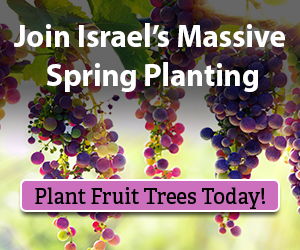At the end of the day, it is not about the dead at all, it is really all about us, the living. They are just mirrors that allow us to reflect upon our own lives.
I am so fed up with cynicism and negativity. It is enormously destructive to be cynical in ways that can only be imagined. Ideally I only want to be around encouraging and positive people—so much could be achieved, dreams realized, hopes actualized and sadness averted if we could remain positive. Even when you look at your situation and it looks bleak, you can still remain positive. If you don’t have your own internal resources to be positive when it looks like there is no reason to be, if you are surrounded by encouraging, positive people they will pick you up when you need it.
In my preparation for Rosh Hashana/Yom Kippur (are we ever really prepared?) I must have visited some 30 to 40 graves both here in Israel and in the Ukraine. Most of the graves were of famous rabbis. When I tell people that I went to cemeteries to pray at (not to) the graves of some of Judaism’s greatest spiritual giants I get one of two reactions. One, “Cool! Wish I could go!” The other reaction is usually highly cynical, “Oh, are you praying to the graves?” “Can’t you just pray in a synagogue or at home?” “Do you think the dead hear you or know what is going on?” “Do you think they can help you” “It is idolatry!” and so on and so on.
So here is my response and maybe, just maybe, I can turn some of the cynics around. I am not going to focus on the fact that Calev went to pray at the graves of our forefathers and foremothers, nor will I quote the relevant sources such as the Shulchan Aruch or Mishna Berurah who support visiting graves. I am speaking from my personal perspective for what it is worth.
On Rosh Hashana and Yom Kippur as part of the tefilla, we say “Adam yisodo mayafar v’sofo liafar” Man’s origins are dust and his end will also be dust. In other words, every human being will be born and every human being will die. This, there is no escaping. Once you are born, you will also die. For that there is no question—the only question that remains is what will you do between those two events. How will you spend the years, months, weeks, days, hours, minutes and seconds of your life? Birth and death are not in your hands but the time in between is.
If you are reading this it means you are alive. This also means that God still wants you to be alive because there is something that only you can achieve. There has never been anyone exactly like you and there will never be anyone like you again. The interaction between your unique life and the unique moment in time that you find yourself in is truly astounding. You are a constant work in progress, never arriving at any destination. You are meant to spend your years in constant motion, hopefully forward, getting closer to Hashem each day. Each day is a new day of creation and there is a new opportunity to fill the day. You can, if you so choose, waste or kill time. It is always your choice.
Habit is one of the greatest enemies of growth. When you slip into a pattern or a routine it is very easy to lose the freshness and energy needed to be in a mode of constant growth. We become, at best, sustainers trying to hold on to our gains but at the same time not adding anything. So it is critical to find inspiration for growth—it could be from parents, friends, teachers, books or any other myriad of sources. The bottom line though is to not be satisfied with where you are now and to find a way to keep advancing.
When you visit the grave of someone, you are standing in front of someone who has completed his/her mission in the world. They were born, lived their allotted years and then returned to dust. When that person is someone like the Ba’al Shem Tov, Rav Kook, the Ohr Hachaim Hakadosh, Rebbe Nachman—how can you not feel inspired by what they achieved? No doubt they had difficulties, challenges, successes and failures just like me, yet they were still able to make their significant contribution to the world. This thought connects me very deeply to the realization that I need to fill my time here on earth and achieve what I am meant to achieve. It is not that I have to be them, for I am not them. But when I see someone who excelled at this earthly life, it inspires me to try to excel as well in a way that only I can.
I also visited the grave of my wife’s grandfather who was a Holocaust survivor. He was born in Poland and saw most of his family exterminated by the Nazi’s (HY”D) yet he managed to build a life after the war in Columbus, Ohio. With his wife, they raised a daughter who would become the mother of my wife and grandmother to my children. He built a small business and for the years I knew him he never forgot the Holocaust but seemed happy. He would tell his grandchildren, “You are my life!” After all he had been through, he knew what was important. Not money, not power, not possessions, not honor but family. He was a proud Jew and loved going to shul, yes, even after all he saw during the war years. So, can you stand in front of his grave and not appreciate the gifts you have in your life? Really??
At the end of the day, it is not about the dead at all, it is really all about us, the living. They are just mirrors that allow us to reflect upon our own lives. When I pray at these grave sites, I do not pray to them; I thank them. I thank them for what they have done for the world and I promise that I too will try to do my part with the skills, talents and gifts that God gave me.
Do You Love Israel? Make a Donation - Show Your Support!
Donate to vital charities that help protect Israeli citizens and inspire millions around the world to support Israel too!
Now more than ever, Israel needs your help to fight and win the war -- including on the battlefield of public opinion.
Antisemitism, anti-Israel bias and boycotts are out of control. Israel's enemies are inciting terror and violence against innocent Israelis and Jews around the world. Help us fight back!




